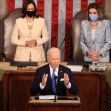Federal law requires decedents to pay an estate and gift tax for property passed to individuals or trusts after a decedent’s death. The tax, however, does not kick in unless and until the total value of the estate exceeds a certain threshold dollar value, valued at the death of the decedent. That threshold represents the federal estate tax exemption. Property passed from estates that exceeds the exemption amount is taxed at the current federal estate tax rate of 40%.
Effective January 1, 2018, per the 2017 Tax Cuts and Jobs Act, the estate tax exemption has more than doubled. The federal estate tax exemption has been raised from around $5.5 million for individuals to $11.2 million, and from around $11 million to $22.4 million for a married couple. The amount is indexed for inflation, meaning it will rise every year that it remains in effect. The law is scheduled to “sunset” on December 31, 2025, meaning the threshold will revert back to pre-2018 levels ($5 million indexed for inflation after 2011).
The new law has limited benefit for Washingtonians because of Washington’s estate tax
As an initial point, the new law only affects high net-worth individuals who would have had estates worth over $5 million (or couples with estates worth over $10 million). Moreover, Washington is one of a handful of states that continues to have a state estate tax. The federal government used to provide a credit against state estate or inheritance tax paid up to a certain value, and so all states had a “pick-up tax” which picked up revenue up to that threshold to offset federal tax liability. After the credit was removed in 2005 and replaced with a deduction, which was less generous to taxpayers, the estate tax in most states disappeared. Washington kept its tax.
Residents of Washington continue to owe an estate tax for property worth in aggregate over $2.1 million. The rate owed increases in brackets once additional threshold amounts are hit, starting at 15%. Unfortunately, Washington has the highest maximum state estate tax at 20% for taxable property over $9 million. Estate taxes paid at the state level can be used as a deduction for federal tax liability, but ultimately, like with income tax, high net-worth Washington residents may owe estate tax to both the state and the IRS. Avoiding estate tax is only one of the benefits of estate planning, however, so even people who do not trigger the estate tax should put together a comprehensive estate plan.






